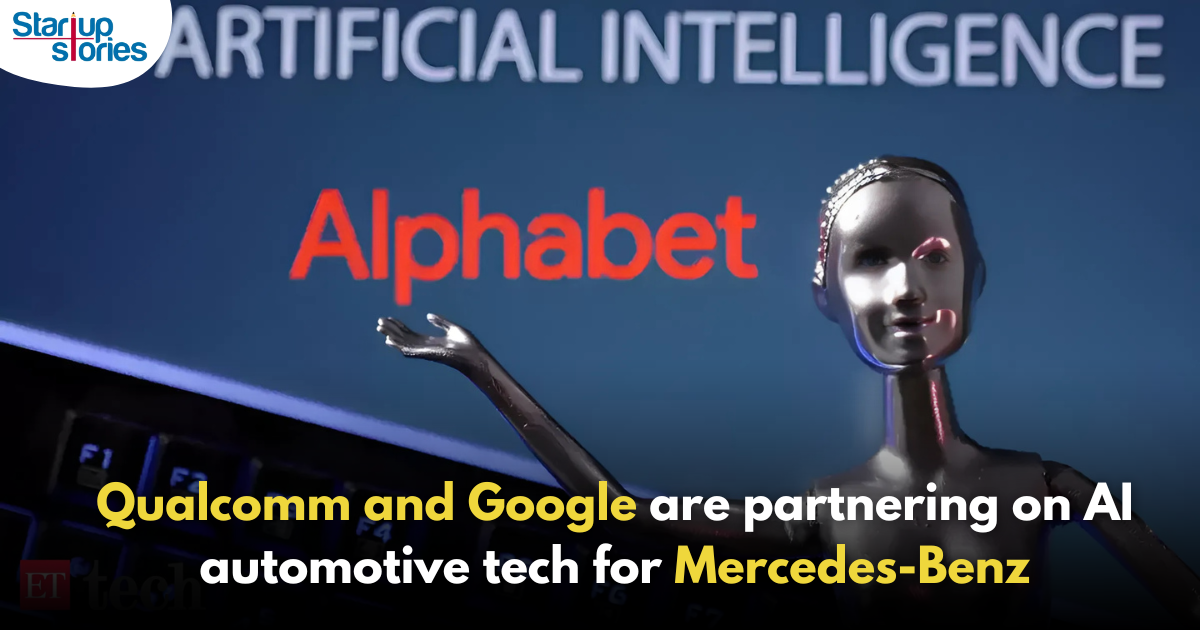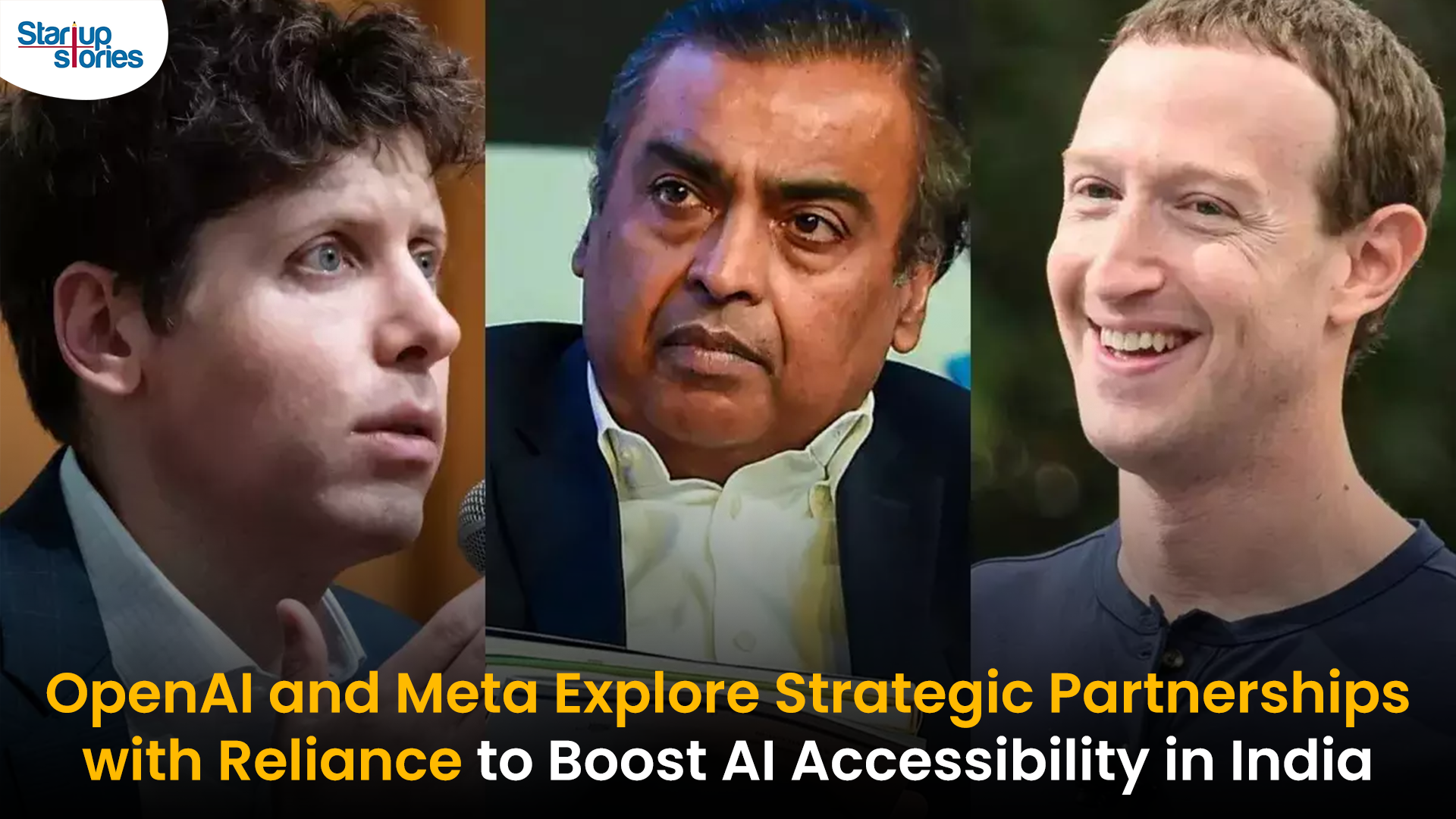Artificial Intelligence
Qualcomm and Alphabet Join Forces for Automotive AI; Mercedes-Benz Signs Chip Deal!

Qualcomm has announced a partnership with Alphabet’s Google to develop a combination of chips and software aimed at helping automakers build AI-powered voice assistants. The collaboration will leverage both Qualcomm’s hardware and Google’s software to allow automakers to create their own customized AI assistants, utilizing cutting-edge technology from both companies.
Expanding into Automotive Solutions
Qualcomm, well-known for its chips that power Android smartphones, has been expanding into the automotive sector, providing solutions for dashboards and self-driving systems, which are already being used by companies like General Motors. As part of this new initiative, Qualcomm and Google are working together to integrate Google’s Android Automotive OS with Qualcomm’s chips, ensuring seamless performance in vehicles.
Understanding Android Automotive OS
While most consumers are familiar with systems like Android Auto and Apple CarPlay that mirror apps from a phone to a car’s dashboard, Android Automotive OS operates behind the scenes, running a vehicle’s computing systems. With this new collaboration, automakers will be able to use Qualcomm’s hardware and Google’s AI capabilities to develop unique voice assistants that work independently of a driver’s phone.
Streamlining Collaboration
“Traditionally, we have worked side-by-side but approached customers separately,” said Nakul Duggal, Qualcomm’s automotive division head. “Now, we are rethinking that approach to eliminate confusion and streamline the process.” This unified strategy aims to simplify the development process for automakers looking to implement advanced technologies in their vehicles.
New Chip Introductions
Additionally, Qualcomm introduced two new chips: the Snapdragon Cockpit Elite, designed for powering car dashboards, and the Snapdragon Ride Elite, aimed at enhancing self-driving features. These advancements reflect Qualcomm’s commitment to leading the automotive technology space.
Partnership with Mercedes-Benz
Mercedes-Benz has confirmed plans to integrate Qualcomm’s Snapdragon Cockpit Elite chip into its upcoming vehicles. While specific models and timelines have yet to be disclosed, this partnership highlights the growing trend of automakers seeking advanced technology solutions to enhance user experience and vehicle performance.
Significance of the Partnership
This partnership marks a significant step forward in the automotive sector’s transition toward smarter, AI-driven systems. By combining Qualcomm’s expertise in hardware with Google’s software capabilities, the collaboration aims to deliver innovative solutions that enhance vehicle functionality and user interaction.
Broader Industry Impact
As the automotive industry increasingly embraces AI technologies, collaborations like this one are essential for driving innovation. The integration of advanced voice assistants can improve driver safety and convenience by enabling hands-free controls and personalized experiences.
Conclusion
Qualcomm’s partnership with Alphabet represents a strategic move to capitalize on the growing demand for intelligent automotive solutions. With major players like Mercedes-Benz on board, this initiative is set to reshape how consumers interact with their vehicles.
As more automakers adopt these technologies, we can expect a future where cars are not only smarter but also more responsive to individual user needs. This collaboration underscores the importance of integrating cutting-edge technology into everyday experiences, paving the way for a new era of automotive innovation.
Artificial Intelligence
Adopt AI Secures $6 Million to Power No-Code AI Agents for Business Automation

Adopt AI, a San Jose and Bengaluru-based agentic AI startup, has raised $6 million in seed funding led by Elevation Capital, with participation from Foster Ventures, Powerhouse Ventures, Darkmode Ventures, and angel investors. The funding will be used to expand the company’s engineering and product teams and to scale enterprise deployments of its automation platform.
Founded by Deepak Anchala, Rahul Bhattacharya, and Anirudh Badam, Adopt AI offers a platform that lets businesses automate workflows and execute complex actions using natural language commands, without needing to rebuild existing systems. Its core products include a no-code Agent Builder, which allows companies to quickly create and deploy AI-driven conversational interfaces, and Agentic Experience, which replaces traditional user interfaces with text-based commands.
The startup’s technology is aimed at SaaS and B2C companies in sectors like banking and healthcare, helping them rapidly integrate intelligent agent capabilities into their applications. Adopt AI’s team includes engineers from Microsoft and Google, with Chief AI Officer Anirudh Badam bringing over a decade of AI experience from Microsoft.
The company has also launched an Early Access Program to let businesses pilot its automation solution and collaborate on new use cases.
Artificial Intelligence
Social Media Platforms Push for AI Labeling to Counter Deepfake Risks

Social media platforms are intensifying efforts to combat the misuse of deepfake technology by advocating for mandatory AI labeling and clearer definitions of synthetic content. Deepfakes, created using advanced artificial intelligence, pose significant threats by enabling the spread of misinformation, particularly in areas like elections, politics, and personal privacy.
Meta’s New Approach
Meta has announced expanded policies to label AI-generated content across Facebook and Instagram. Starting May 2025, “Made with AI” labels will be applied to synthetic media, with additional warnings for high-risk content that could deceive the public. Meta also requires political advertisers to disclose the use of AI in ads related to elections or social issues, aiming to address concerns ahead of key elections in India, the U.S., and Europe.
Industry-Wide Efforts
Other platforms like TikTok and Google have introduced similar rules, requiring deepfake content to be labeled clearly. TikTok has banned deepfakes involving private figures and minors, while the EU has urged platforms to label AI-generated media under its Digital Services Act guidelines.
Challenges Ahead
Despite these measures, detecting all AI-generated content remains difficult due to technological limitations. Experts warn that labeling alone may not fully prevent misinformation campaigns, especially as generative AI tools become more accessible.
Election Implications
With major elections scheduled in 2025, experts fear deepfakes could exacerbate misinformation campaigns, influencing voter perceptions. Social media platforms are under pressure to refine their policies and technologies to ensure transparency while safeguarding free speech.
Artificial Intelligence
Transforming India’s AI Landscape: OpenAI and Meta’s Collaborative Talks with Reliance Industries

OpenAI and Meta Platforms are reportedly in discussions with India’s Reliance Industries to explore potential partnerships aimed at enhancing their artificial intelligence (AI) offerings in the country. This development underscores India’s growing significance in the global AI landscape.
Key Aspects of the Discussions
- Partnership with Reliance Jio: One of the main focuses is a potential collaboration between Reliance Jio and OpenAI to facilitate the distribution of ChatGPT in India. This could enable wider access to advanced AI tools for businesses and consumers, leveraging Reliance’s extensive telecommunications network.
- Subscription Price Reduction: OpenAI is considering reducing the subscription cost for ChatGPT from $20 to a more affordable price, potentially just a few dollars. While it is unclear if this has been discussed with Reliance, such a move could significantly broaden access to AI services for various user demographics, including enterprises and students.
- Infrastructure Development: Reliance has expressed interest in hosting OpenAI’s models locally, ensuring that customer data remains within India. This aligns with data sovereignty regulations and addresses growing concerns about data privacy. A planned three-gigawatt data center in Jamnagar, Gujarat, is expected to serve as a major hub for these AI operations.
Market Implications
These potential partnerships reflect a broader trend among international tech firms aiming to democratize access to AI technologies in India. If successful, they could reshape India’s AI ecosystem and accelerate adoption across various sectors. As negotiations continue, stakeholders are closely monitoring how these alliances may impact India’s technological landscape and its position as a leader in AI innovation.













4r9c6
June 5, 2025 at 2:34 pm
clomiphene pills at dischem price where can i buy clomiphene no prescription buy clomiphene tablets where to get clomid without dr prescription clomid price in usa how to buy clomiphene price can i order generic clomiphene without rx
^Inregistrare Binance US
July 20, 2025 at 4:02 am
Your point of view caught my eye and was very interesting. Thanks. I have a question for you.
GO88
November 6, 2025 at 2:40 am
Tham gia cộng đồng game thủ tại Go88 để trải nghiệm các trò chơi bài, poker phổ biến nhất hiện nay.
MM88
November 7, 2025 at 6:17 pm
Khám phá thế giới giải trí trực tuyến đỉnh cao tại MM88, nơi mang đến những trải nghiệm cá cược thể thao và casino sống động.
站群程序
November 8, 2025 at 8:16 pm
搭载智能站群程序,自动化搭建与管理,为SEO项目提供核心驱动力。站群程序
谷歌蜘蛛池
November 12, 2025 at 7:53 pm
利用强大的谷歌蜘蛛池技术,大幅提升网站收录效率与页面抓取频率。谷歌蜘蛛池
J88
November 19, 2025 at 7:13 am
Đến với J88, bạn sẽ được trải nghiệm dịch vụ cá cược chuyên nghiệp cùng hàng ngàn sự kiện khuyến mãi độc quyền.
Kuwin
November 22, 2025 at 12:16 am
kuwin sở hữu kho game đa dạng từ slot đến trò chơi bài đổi thưởng, mang đến cho bạn những giây phút giải trí tuyệt vời.
MM88
November 22, 2025 at 10:32 am
Với giao diện mượt mà và ưu đãi hấp dẫn, MM88 là lựa chọn lý tưởng cho các tín đồ giải trí trực tuyến.
iwin
November 29, 2025 at 9:45 pm
iwin – nền tảng game bài đổi thưởng uy tín, nơi bạn có thể thử vận may và tận hưởng nhiều tựa game hấp